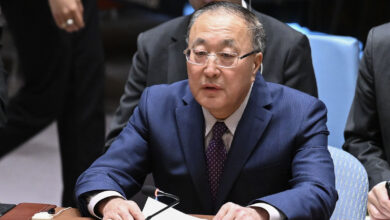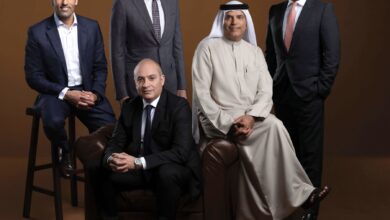
A new international bond and grant scheme to help countries dealing with the fallout of war and instability in the Middle East and North Africa should be in place by spring, a senior World Bank official said.
In a Reuters interview, Hafez Ghanem, the World Bank's vice president for the Middle East and North Africa, said the type of investment targeted by the plan – education, infrastructure and jobs – was vital to addressing the region's refugee crises.
He said that humanitarian aid alone was not enough and the alternative was "one or two lost generations" in a region with 15 million refugees or internally displaced people.
Ghanem spoke during a visit to Lebanon, which is struggling to cope with more than 1 million registered Syrian refugees who account for a quarter of the population.
He said he could not remember a time in his nearly three-decade career of such high demand from middle-income countries for assistance.
"The demand on our support is very high right now and it is going to increase, because as you bring peace through political or security measures, to make the peace hold, you need to give people opportunities and hope," he said.
"We are trying to raise more resources, that is why we have proposed this financing mechanism."
The World Bank, United Nations and Islamic Development Bank last month announced the initiative that would ask donor countries to provide guarantees for bonds raising money for certain projects ranging from support for refugees to rebuilding to allow displaced people to return home.
Some would be Islamic bonds, or sukuk, targeting investors in the region, where conflicts are raging in Syria, Iraq, Yemen and Libya. The proposal also includes asking donors for grants to cut the interest rate for states hosting refugees.
"If we agree and succeed in putting this together, it's not a one-shot deal. It's something that will have to be done over several years, and the amount of work that is needed, the projects that will need to be implemented, none of us can implement them very quickly," Ghanem said.
Rebuilding Libya, Yemen, Syria
"We are talking development projects, investments in education, health, infrastructure. So the way I see it is we will start gradually," he said. "We are not envisioning an amount right now."
"The big amounts will be required when you do the reconstruction say in Syria, or in Yemen, or Libya, but right now you cannot do that."
The aim is to have the financing mechanism in place by spring, he said. Governments that had expressed interest in the plan included the Group of Seven nations, Nordic states, the Netherlands, Saudi Arabia, the United Arab Emirates, Kuwait and Qatar.
He said a forthcoming meeting would include beneficiary states including Jordan, Egypt, Tunisia, Morocco and Lebanon.
Lebanon's response to the refugee crisis and other problems has been hampered by its own internal political conflict.
Lebanon's parliament convened for the first time in a year last week to approve laws including one allowing implementation of a $600 million dam to be built with World Bank financing. The project has been held up for more than a year.
"I hope that by the time we put this financing mechanism in place – and our objective is to move very fast – like in the next two or three months – Lebanon will also have found a way to make sure we don't have to wait years before our projects get approved by parliament," Ghanem said.
He also said World Bank expects to make a $1 billion loan available to Egypt in December after completing negotiations in Cairo last weekend and that it was in talks with Iraq to lend more money after agreeing a $350 million loan in July.




